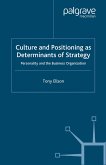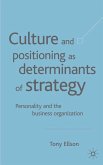In Germany's Economic Renaissance, veteran European correspondent Jack Ewing of The International New York Times explains how a country with some of the highest labor and energy costs in the world beat the odds to become the third-largest exporter of manufactured goods, after China and the United States. Men and women who manage German companies both big and small explain how any company can behave like a multinational, as well as the secrets of conquering the high end of the market where quality is more important than price. Both informative and entertaining, filled with rich character studies, this book is essential reading for everyone wondering how to bring factories - and the jobs they provide - back to American shores.
"Jack Ewing dissects German business rules, habits, and procedures with the precise curiosity of an engineer who takes apart and analyses the newest product of a competitor. His approach is hands-on rather than theoretic and due to dozens of interviews with CEOs, managers, and company owners, as well as employee representatives, he attains an illuminating insight into the inner machinery of the German economy and its success. In doing so he has written a very easily understandable and readable book about the second German Wirtschaftswunder. " - Wolfgang Reuter, Editor, Handelsblatt
"Anyone looking to understand what makes Germany tick should read this book. Extraordinarily deft, profoundly human, and yet a deep analysis of how and why Europe's biggest economy works. Jack Ewing has spent two decades chronicling Germany, and has poured his knowledge and insight into one of the best portraits of the newly born, post-Cold War country, its leaders, and above all its prudent yet daring business people, the bedrock of their country, its success and its stumbles." - Alison Smale, Bureau Chief, The New York Times, Berlin, Germany; former Executive Editor, International Herald Tribune
"Jack Ewing's analysis of the German economy's structure and character is comprehensive and thorough. From traditions to mentality, education to business practices, 'Mittelstand' to 'Agenda 2010', he describes what makes the German economy what it is today. As an experienced high-caliber journalist and long-time German resident, he is able to translate the specific characteristics of German management, economic policy, and society into an accessible and enjoyable read recommended for non-Germans and Germans alike." - Roland Berger, Founder and Honorary Chairman, Roland Berger Strategy Consultants
"Is Germany's resurgence as a global economic power and political leader in Europe due to a secret strategy no one else can duplicate? Jack Ewing's insightful analysis of Germany's story shows how Germans built an equation based on historical strengths, adaptation to change, and commitment to competitive excellence. Typical German? Maybe - or maybe not, for those willing to take a look and a lesson from German formulas for success." - Jackson Janes, President, American Institute for Contemporary German Studies, John Hopkins University, USA
"Guido Westerwelle once said about Germany's economic competition with the United States, 'wir müssen Amerika nicht unbedingt kopieren sondern kapieren' (we don't necessarily have to copy the United States rather understand it). The United States has had a different path to its pinnacle of economic success, but it certainly can take a look across the Atlantic to understand what tools are needed to compete today - including those made in Germany." - AICGS Notizen
"Ewing uses a variety of small to midsized firms and their generally noncorporate owners to illustrate the 'German' approach totechnical innovation, market cultivation, and periods of economic stagnation . . . Very well written, the book exhibits a style that makes it accessible to a broad academic and nonacademic readership." - CHOICE, Recommended
"This exposition of the German approach clarifies very persuasively why the German economy has once again achieved the role of powerhouse in Europe, and begs the obvious question of what others could learn from its strategy: 'Kapieren statt kopieren' that is 'understanding rather than just copying' must be the name of the game." - German Politics
"Anyone looking to understand what makes Germany tick should read this book. Extraordinarily deft, profoundly human, and yet a deep analysis of how and why Europe's biggest economy works. Jack Ewing has spent two decades chronicling Germany, and has poured his knowledge and insight into one of the best portraits of the newly born, post-Cold War country, its leaders, and above all its prudent yet daring business people, the bedrock of their country, its success and its stumbles." - Alison Smale, Bureau Chief, The New York Times, Berlin, Germany; former Executive Editor, International Herald Tribune
"Jack Ewing's analysis of the German economy's structure and character is comprehensive and thorough. From traditions to mentality, education to business practices, 'Mittelstand' to 'Agenda 2010', he describes what makes the German economy what it is today. As an experienced high-caliber journalist and long-time German resident, he is able to translate the specific characteristics of German management, economic policy, and society into an accessible and enjoyable read recommended for non-Germans and Germans alike." - Roland Berger, Founder and Honorary Chairman, Roland Berger Strategy Consultants
"Is Germany's resurgence as a global economic power and political leader in Europe due to a secret strategy no one else can duplicate? Jack Ewing's insightful analysis of Germany's story shows how Germans built an equation based on historical strengths, adaptation to change, and commitment to competitive excellence. Typical German? Maybe - or maybe not, for those willing to take a look and a lesson from German formulas for success." - Jackson Janes, President, American Institute for Contemporary German Studies, John Hopkins University, USA
"Guido Westerwelle once said about Germany's economic competition with the United States, 'wir müssen Amerika nicht unbedingt kopieren sondern kapieren' (we don't necessarily have to copy the United States rather understand it). The United States has had a different path to its pinnacle of economic success, but it certainly can take a look across the Atlantic to understand what tools are needed to compete today - including those made in Germany." - AICGS Notizen
"Ewing uses a variety of small to midsized firms and their generally noncorporate owners to illustrate the 'German' approach totechnical innovation, market cultivation, and periods of economic stagnation . . . Very well written, the book exhibits a style that makes it accessible to a broad academic and nonacademic readership." - CHOICE, Recommended
"This exposition of the German approach clarifies very persuasively why the German economy has once again achieved the role of powerhouse in Europe, and begs the obvious question of what others could learn from its strategy: 'Kapieren statt kopieren' that is 'understanding rather than just copying' must be the name of the game." - German Politics









